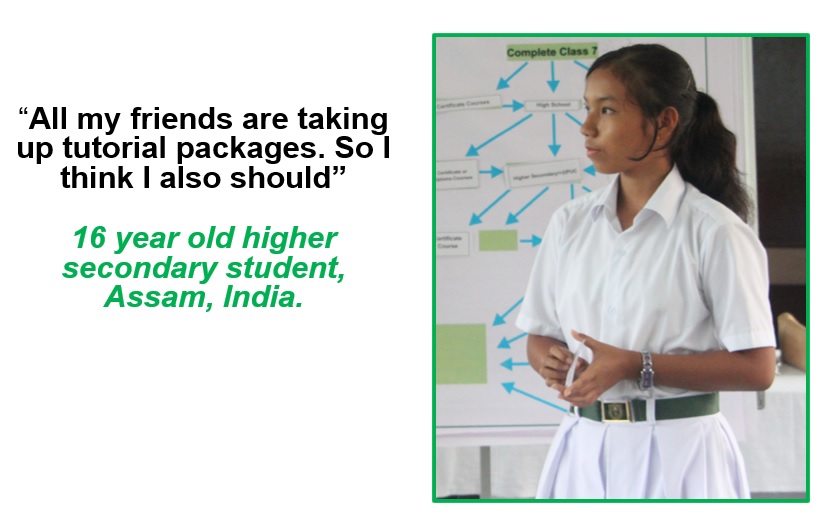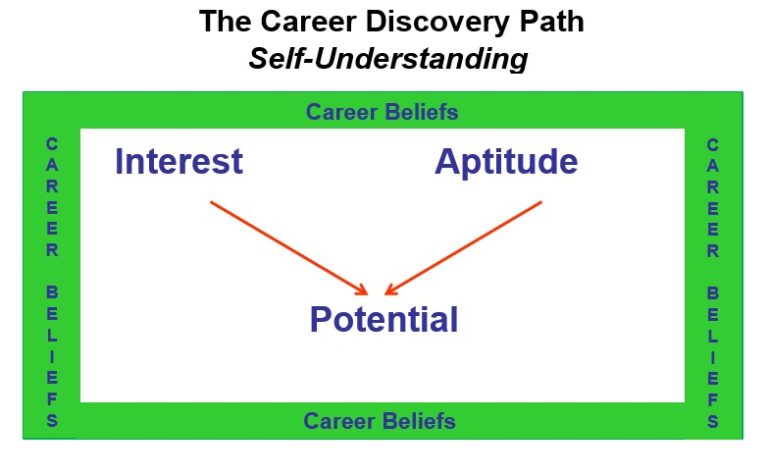Career Beliefs









Social cognitions are patterns of thinking that have become habitual across social groups. Career beliefs are habits of thought which influence career development. They are attitudes, mindsets and opinions that underlie people’s idea of a career. These patterns of beliefs maybe not just be limited to a single individual. They maybe embedded in the community as a whole and transmitted to the young in that community through a process of social learning. The slides give examples of common career beliefs.
Impact of Career Beliefs
Career beliefs could colour the manner in which a career aspirant deals with career development tasks. Some examples of common career beliefs are: “Boys are better at mathematics and science than girls”, or “Immigrants cannot accept the work ethic of the host country job market”. The impact of career beliefs on the career development process can be marked and critical. The effectiveness of career counselling can crumble if prevailing career beliefs are left unaddressed.
Types of Career Beliefs
Our research has indicated that there are various types of career beliefs. Some of them are:
Proficiency Beliefs: These beliefs describe the willingness to submit to the rigors of a formal training programme and spend resources (time, effort and finances) to achieve the distinction of being formally qualified as per the norms of a given educational system.
Control and Self Direction Beliefs: Situations and experiences influence the direction that one’s life can take. These beliefs reflect the individual’s sense of control over his or her life situation and the orientation to directing his or her life.
Common Practice: Unwritten norms shape the career preparation behaviour of a community in a certain way. These are group expectations of “correct” behaviour. The individual may find it hard to go against these expectations.
Persistence Beliefs: Successful career development requires the individual to face and attempt to overcome difficulties and hurdles that punctuate progress toward a career goal. The content of these beliefs reflect the determination to work toward future career goals in spite of the barriers encountered during the process of career preparation. Individuals with low persistence beliefs may give up a career development target easily.
Fatalism: The content of these beliefs portray a sense of resignation and a passive acceptance of one’s life situation. Fatalistic beliefs are coloured by the feeling of pessimism, a sense that nothing can be changed and that matters are pre-ordained by more powerful forces.
Jiva addresses career beliefs

As shown in the diagram above, career beliefs are an important part of the Jiva Career Discovery Equation since beliefs have a powerful impact on career development. A student with a high potential for design, for example, might be discarding careers such as commercial art or graphic design because her friends believe that there is no future in such careers. Another student may feel compelled to take up engineering just because he is a boy. Vast numbers of students and their parents have been led to believe that going to a tutorial is a must for career development.
While Jiva introduces students to their interests and aptitudes, they also engage with a range of introspective and peer learning activities that encourage them to think about how their career beliefs hinder or promote their career development.
Click here for Jiva resources on career beliefs:
